“I can see the awning needs fixing from here,” he says, his iPad resting on his belly, glasses lowered on his nose. “I just can’t do anything about it.”
It’s not frustration at me, not really.
It’s frustration at the weight of not doing — of watching a problem accumulate, knowing he would have fixed it by now, knowing he should have fixed it by now.
I follow his gaze to the awning stretched over our redwood deck. Two months’ worth of acorns and thorny oak leaves have gathered there, ghosts of autumn from our neighbor’s tree.
It was why he installed the awning in the first place — to protect the wood from the sap, to prevent the pup from munching on things he shouldn’t.
But now, it's speckled with fungus and sagging under the accumulated weight, threatening to break.
He used to clear it regularly, poking away the debris from under with practiced ease. But travel, pain, and then surgery left it unattended. I tried. I stood there with the persimmon picker, stretching my arms upward, poking the sag from the bottom. But they mockingly bobbed without going anywhere. My strength wasn’t enough.
And so the weight remains.
Where Identity Begins to Blur
My husband excels at improving the world around him — he can’t help it. He’s always been the fixer of broken stuff ... even when he visits his parents or mine for a short 2-days halfway across the world, I hear about leaky faucets getting replaced, new ergonomic toilet seats being installed, power generators being purchased.
It’s non-stop.
This past week, recovering from surgery, his brain is constantly scanning for inefficiencies — the shower pressure that could be optimized, the Wi-Fi that could be faster, the guest room light that should be at a reduced Kelvin level.
He can’t sit, yet, so he lays on the couch with his iPad responding to work emails — because he needs reminders that assure him he’s still contributing, still needed, still part of the world’s pulse.
I recognize this drive intimately — it’s in my own late-night writing sessions, my constant project planning, my lists of Plans B and C should Plan A fail.
We’re both doers, each in our own way, but between us, I identify more as a “be-er.”
In the 24 years we’ve been together, our travel routine has become almost comical in its predictability. The moment we enter a hotel room or AirBnB, he's immediately in motion — setting up phone chargers, connecting to WiFi, unpacking suitcases, making the space functional. Meanwhile, I’m drawn to the window or porch, looking for some Earl Grey, breathing in the newness of the place.
When you’ve been with someone for half your life, you come to realize how similar yet different you are. Or perhaps how different yet similar you are. It’s a study in paradoxes.
So, it was interesting when I read him a passage from
’s Making Time — a book about finding meaning beyond productivity — it sparked a debate.“Life needs purpose,” he responded to my read-aloud, the frustration of present inaction weighing heavily on him. “We’re here to make a difference.”
“Maybe just being here itself is purpose," I suggested, quoting from my newly-acquired book.
I knew I was at philosophical odds with him in that moment.
The silence that followed wasn’t contemplative — it was heavy, the kind that made me wonder, once again, if I’d missed something essential about his need to contribute, to fix, to move forward.
“I hope this company survives without me,” he murmured one evening, his iPad finally set aside, staring at the awning.
It wasn’t just the leaves. It was the unread emails, the decisions unmade, the unchecked to-do lists. The weight of inaction pressed against him the same way the debris weighed down the awning — something he could once fix effortlessly now threatening to collapse under neglect.
And suddenly, I saw him not just as the fixer, but as someone who carries the weight of care in everything he does ... who isn't just fixing things but preserving order, preventing chaos, making life easier for the people he loves.
Maybe that’s why it's so hard to untangle doing from being.
The Privilege (and Interruption) of Stillness
I’ve had seasons where I’ve been forced into stillness. Pregnancy. Leaving my six-figure corporate job to become a full-time mother. Exploring the idea of being an artist. Not that those seasons weren't full of work, but they came with societal permission to shift gears — they were structured and accepted pauses given to a woman with privileges. It was my choice.
My husband doesn’t have that luxury.
As the CEO of a startup, being isn’t just difficult for him; it’s almost nonexistent in his world. His inbox doesn’t pause because he does. Problems don’t politely wait for his recovery. Each notification is a reminder of responsibilities temporarily thwarted.
Stillness, for him, isn’t a choice — it’s an interruption. A forced pause in an identity built on constant motion.
And yet, when he does manage to disconnect — when he books a massage, for instance — he falls asleep almost instantly. His body, when given the chance, knows how to switch off.
Me — the big-”being is my mantra” talker?
I can’t.
At my last acupuncture appointment I lay there — needles poking out of my scalp, neck, shoulders and feet, the electrical current pulsating my sore muscles — my mind cataloging the weekly to-do list.
I think about the essays I want to draft, the emails I need to send, the grocery cart waiting to be checked out on my phone — do we have enough milk? Did I remember to add my substitution preferences? I definitely don't want to get oat milk if A2 milk is out of stock!
My body has been forced into stillness, but my mind is a construction zone.
So who struggles more with being? The one who seemingly resists it every day or the one who can't find it even when given the opportunity?
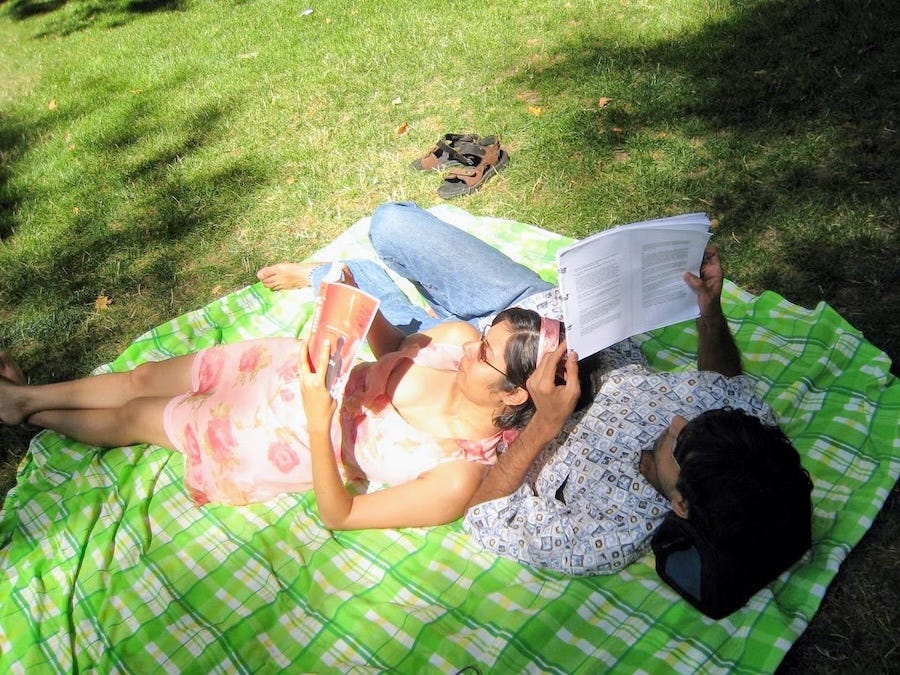
The Dance of Doing and Being
When I say, I identify as a “be-er” more in our household (am I making you think of Bud Light, yet?), it’s not because I want to be “woke” or trendy.
I truly believe there is merit in setting time aside to simply embrace stillness — lord knows we need it in our overwhelmingly chaotic notification-dependent, calendared lives! But for the sake of transparency and complete honesty with my own self, I wonder if I’m hiding behind these “reflections” in the same way he hides behind what is commonly known as productivity.
Isn’t my impulse to make meaning of this moment through writing, to analyze our different approaches, just another form of doing, dressed up as being?
I spent the last two weeks obsessively creating a Notion database for my essays, teaching myself JavaScript to polish my website, reading forums about how to fix backend issues I’ll likely never need to fix. Is that any different from his compulsive need to make things better?
Maybe that’s what makes this conversation so complex (and interesting): knowing that none of us are purely one thing or the other.
It’s been a well-choreographed dance in our house these past couple of weeks.
I see him close his eyes and savor the unexpected moments of joy — a squirrel scampering on our fence, a hummingbird on our deck, the rainbow patch on our steps.
This is not his normal.
And then there’s our daughter, lost in her books, our pup stretched out beside her like a furry parenthesis. Don’t get fooled by his state of languish, though. He dances to his own tune, too — fully committed when chasing “Jellyfish” (his most beloved toy!) bringing all his energy and focus to the task, then equally present in his brief moments of rest.
I look at them with envy ... no phones chirping for attention, no email notifications breaking their beautifully integrated state of engagement and presence. They are unwitting masters of what adults spend years trying to relearn.
Perhaps, they inherently, instinctively know that both states of doing and being are complete in and of themselves. Both are necessary, neither diminishing the other.
Even when she was in pre-K, our daughter showed me glimpses of this “old soul wisdom.” When well-meaning adults asked her what she wanted to be when she grows up, she would say: “I want to be kind and helpful and loving.”
She wasn't rejecting the question; she was reframing it.
She was distilling it down to who we are shapes what we do, and what we do reflects who we are.
The process of reading Making Time has become its own lesson in this integration for me. I pause after each chapter to write, to reflect, to create. Three weeks in, I’m not even halfway through. I tell myself this slow pace is about rumination, about letting the ideas settle. But here I am, writing about the importance of being present, but the awareness of this importance is becoming another form of doing.
It’s maddening, really — like trying to observe yourself falling asleep.
Aargh!
But, am I being too harsh on us as we adult through life? The goal cannot be to stop doing entirely! Imagine that?
I suppose the learning is not in untangling doing from being, but to see how they shape each other, to acknowledge how even the act of noticing is its own quiet kind of doing.
Through this lens, my husband’s restlessness with recovery isn’t simply about doing versus being — it’s about navigating a temporary disruption to his natural way of engaging with life.
Our daughter’s answer about kindness isn’t a rejection of doing but a recognition that who we are infuses everything we do.
I think of Maria’s words about “trusting life as a creative process” as I watch this unfold in our home.
Sometimes it takes a dog, a child, and some doctor-mandated stillness to spark these conversations — about what we’re doing (or not doing), who we’re being, what we’re learning and unlearning along the way.
As my husband and I talk between his moments of rest and rehabilitation, between my reading and writing, between reflection and action, we’re both growing into new understandings of ourselves and each other.
What began as a debate about doing versus being has revealed itself as something else entirely: it's not about choosing between the two, but in recognizing our own unique rhythm of when one ebbs and the other flows.
For some of us, that means figuring out ways to fix awnings while healing. For others, it means writing about learning to be still.
For our daughter, it means being kind while doing good. For our pup, it means chasing balls and napping in sunbeams.
Each of us choreographs this dance in our own way.
And, perhaps, the most beautiful part of it is the ongoing conversation: the questions we ask, the patterns we notice, the assumptions we unravel, the ways we grow in the spaces between doing and being, becoming and unbecoming, learning and unlearning.
So, I ask you as you leave this space today:
What does your dance between doing and being look like?
Is doing the only way we know how to feel worthy?
How do you measure your own value — by what you do, or by who you are?
I look forward to hearing from you.
Take care,
Mansi.
If you enjoyed this post here are a couple of others you might like:
Of Chronic Pain & the Healing Effect of Art
This past week has been especially poignant as I’ve watched my husband struggle with intense pain — urgent care visits, painkillers, and injections marking our days.
More Than Just a Nice Gesture
These aren’t random acts of kindness left anonymously on park benches. They’re not artist trading cards exchanged within creative circles. They’re intentional moments of connection. They’re moments of conscious courage, of choosing to be the voice I wish I’d had the strength to be all those years ago.
The Art of Slowing Down
While I am training my mind and body to appreciate the warmth of the morning sunlight on my face as I sip my cacao … and while I am learning to speak to myself with more kindness and give myself more grace … true contentment to me is coming from my daily practice of making notes of gratitude.

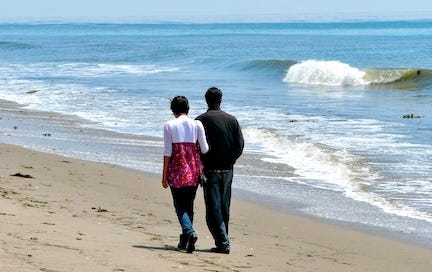


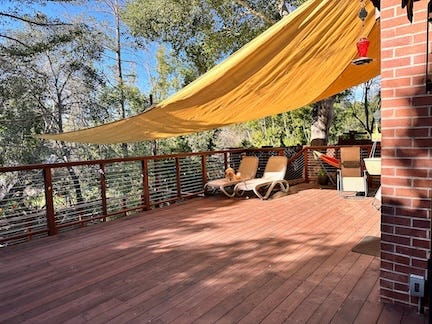
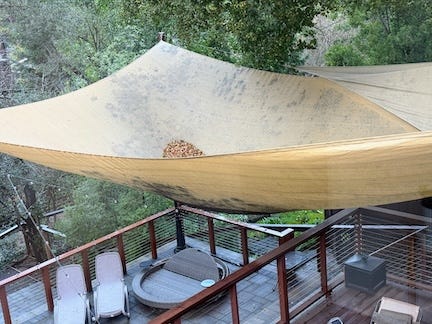
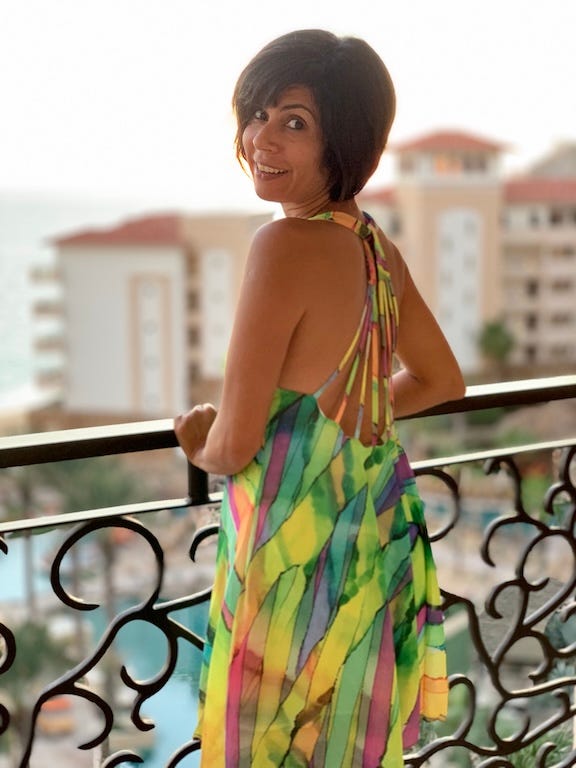
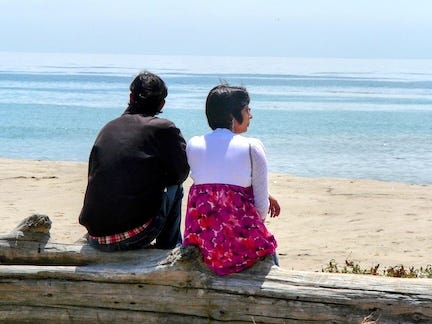
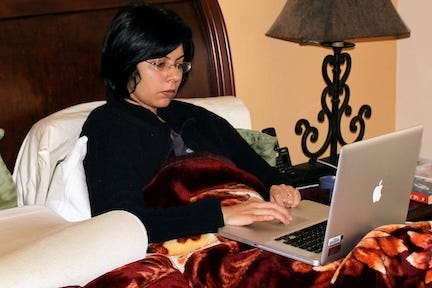

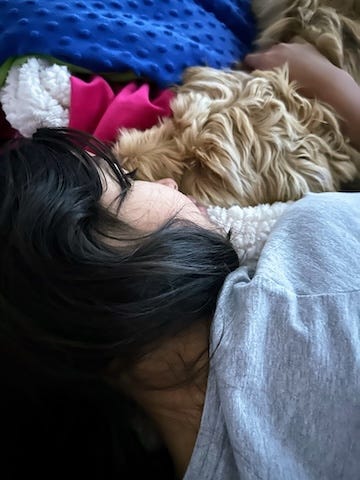

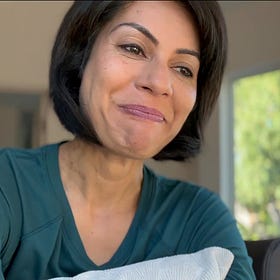
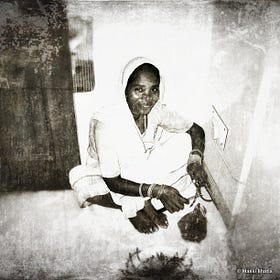

Hi Mansi,
What a breathtaking essay. Your philosophy about stillness and being versus doing reminds me of a time when I wrote a book about waiting. Does waiting have a purpose? What can seasons of inactivity teach us? These were questions I began with, and I dove into the spirituality (because I was a spirituality author back then) of waiting.
What I learned is that most of us struggle with periods of rest and inactivity, because we are primed to be "productive citizens of society." Think about it: who do we value the most? a person who is nonverbal and in a wheelchair or someone in a corporate position? Naturally, you and I might answer this question differently than most people would. I'm sure we would, in fact. But it's evident by the way our society upholds those who "contribute" something to it while infantilizing those who are disabled or unable to work.
My belief is that ALL humans have dignity, and I strive to treat them that way. Maybe having a daughter like Sarah has brought that to the forefront for me. It seems to me that I needed to learn that lesson, because I am a lot like your husband--a doer. I struggle with feeling guilty when I take a break, or a walk, or a nap, or a massage. But I know I am not a machine. No human is. And in remembering my limitations, I am better able to care for myself and give others the room to care for themselves, too.
What a great essay today!
This was beautiful! The dynamics in my marriage are similar (although I have ADHD so I don’t think I’m even as productive as you) and it was very thought provoking to read and see the world through my husband’s eyes (he sounds a lot like yours 🙃) thank you so much !